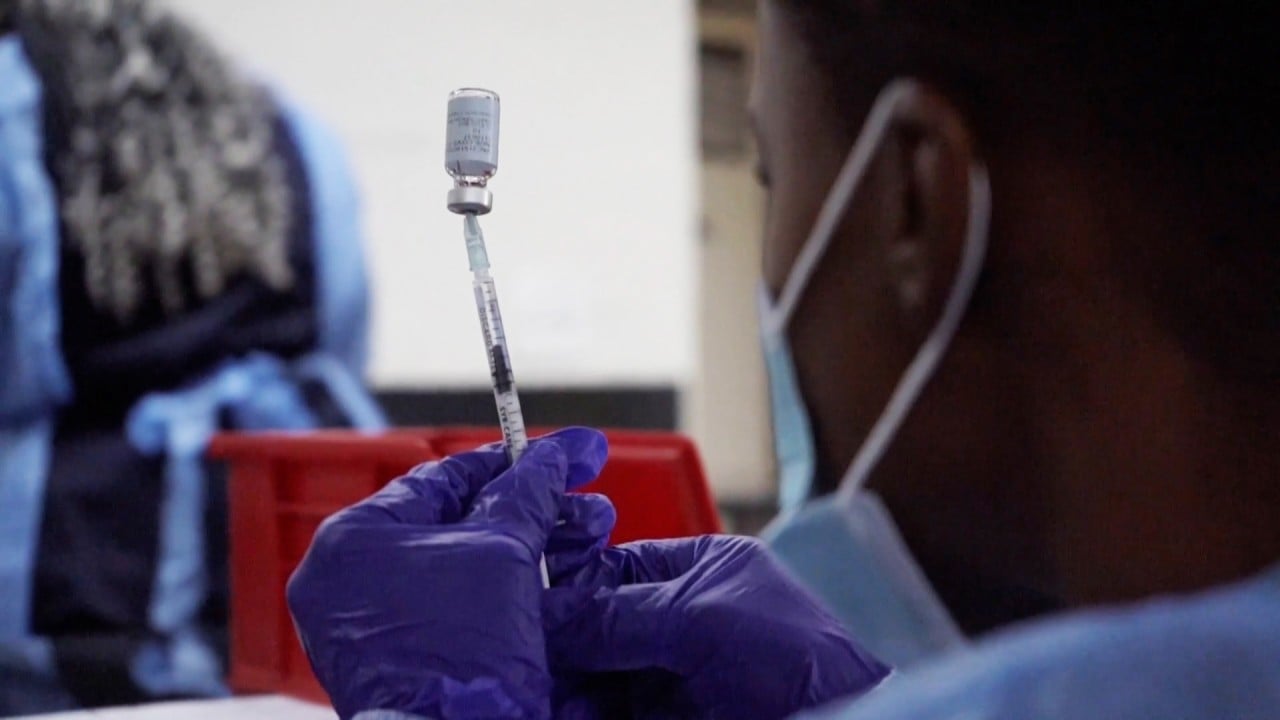
As Omicron rattles stock markets, is the panic warranted?
- While medical experts say they don’t know enough yet about the new variant of concern, politicians, vaccine company bosses and economists haven’t shied away from airing their views
- Markets and news stories tend to overreact to shock news, but investors should look carefully at the evidence
Therein lies an important lesson about narratives in finance. Don’t react on the first flush of breaking news about an old narrative. Markets and news stories tend to overreact to shock news; investors need to keep their nerve and look carefully at the evidence.
A Sky News ticker read,“Adviser to South African government says too early to tell whether vaccines will work against the Omicron variant”. The line would make more sense with the word “not” between “will” and “work”. Why make the worst assumption on little evidence?
The fevered sentiment around anything Covid-19 makes it easy to spin the narrative into hot news. Surely the most sensible approach is for our experts to assume the status quo until we have hard evidence to the contrary. If the variant was really that bad, we would surely have at least some early indications, given how studied this virus is.
And therein lies the rub, for Covid-19 benefits from massive attention bias, with our experts falling prey to the “law of small numbers”. Developed by Kahneman and his coauthor, Amos Tversky, this “law” says people tend to generalise based on small amounts of data.
The virus is broadly under control, but we still want to wallow in the bad news.

Scientists fear that this new strain could be more transmissible and indeed in Gauteng, South Africa, early testing indicating that 90 per cent of the new cases are of Omicron. But is that not logical if you think about it?
The experts worry about “vaccine escape” but so far the existing vaccines seem to mitigate serious illness even if they don’t hit the bullseye. The AstraZeneca vaccine showed 80 per cent levels of hospitalisation protection against the Beta variant, despite not being designed to do so. Indeed, a tailor-made vaccine for Omicron could be ready in three months.
This is not to say that the Omicron restrictions that many countries have brought in to try and reduce the variant transmission are not sensible. Indeed, the West should have acted promptly in February 2020. Further measured restrictions today will not hurt economic growth used to two years of friction, but calls for tighter restrictions than ever are just panicky.
The lesson for those investors who sold on the dip last Friday should be to ask: the market may have fallen but is there any evidence to say that Omicron is going to shut the global economy down? The real reason why markets fell last week was that most have gone up effortlessly this year and quite rightly so. Liquidity is still high, earnings are going up, and the Fed is ridiculously accommodating negative real interest rates.
This new variant came at a time when the markets needed a good excuse to break the consistent bullishness, but it will not be the trigger for a crash. It was merely the supporting act for Fed chairman Jerome Powell’s comments this week indicating interest rates might go up earlier than expected.
As another great behaviouralist Gerd Gigerenzer says, we have to live with uncertainty. Investors must follow the science, and not be panicked by editors, politicians and epidemiologists burnishing their careers. Since the beginning of time, viruses have and will continue to evolve. Investors should worry about the next one – not a variant.
The remaining question for Covid-19 is: what happens when the World Health Organization runs out of Greek letters?
Richard Harris is chief executive of Port Shelter Investment and is a veteran investment manager, banker, writer and broadcaster and financial expert witness



